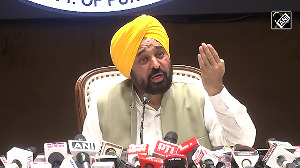"We have made some progress in moving towards a more representative mechanism to manage global economic and financial issues. The same cannot be said about governance of the political and security order. There is a need to reform the United Nations and its Security Council," Dr Singh said in an address to the Council of Foreign Relations.
He said that in his interactions with US President Obama, he had found a shared thinking on the moral imperative of putting the poor at the forefront of the global agenda.
"In Africa, Asia and elsewhere, they must have access to education that gives them bankable skills, to nutrition and to healthcare," he said.
He said that the social agenda has come to dominate the domestic political discourse in both countries. "This was the verdict of our general elections held in May 2009, and I believe it was also of yours. The time is opportune for us to substantially enhance our cooperation in the critical areas of education, health, energy, science and technology and agriculture," he said.
India, he said, has embarked on its largest education expansion program since independence. "There are plans to set up more than 40 new universities and institutions. We would like to benefit from the great American university system, which attracts a large number of Indian students every year," he added.
American agricultural science and technology can help India usher in a second Green Revolution, he said, and added that India's competitive advantages in the pharmaceutical and medical services industries too can support healthcare reform in the United States.
"We can cooperate in the development, production and deployment of green technologies. In this context, we should fully harness our bilateral civil nuclear cooperation agreement to shape the nuclear renaissance in the energy industry," he said.







